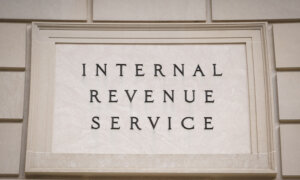Terrorist organization Hamas, which is sanctioned by the U.S. government, has “reportedly used fake charities and cryptocurrency to evade sanctions and fund its attacks,” Sen. Ron Wyden (D-Ore.) wrote in an Oct. 31 letter to IRS commissioner Danny Werfel. “The IRS Tax Exempt and Government Entities Division can police fake charities, and the IRS Criminal Investigation Division (CI) is one of the few law enforcement agencies with the skills to address sanctions evasion done via cryptocurrency.” However, reduced IRS funding could put such efforts at risk, the Democrat lawmaker argued. Related StoriesDemocrats Pan House Israel Funding Bill Stripping IRS Funding10/31/2023IRS Chief Hints at Possibility Audits May Rise for Americans Earning Under $400,00010/28/2023 House Republicans proposed slashing IRS funding as a way to secure money for Israel’s aid. The proposal, released on Oct. 30, allocates $14.3 billion in aid amount, as requested by the Biden administration, towards helping Israel, offsetting it by reducing IRS’s Inflation Reduction Act (IRA) funding by the same amount. The IRA allocated $80 billion in funding for the IRS. Republicans had clawed back $20 billion to agree to a debt deal with Democrats in May. In the letter, Mr. Wyden pointed out that Congress has already rescinded $1.4 billion from the funding, and other bills would reduce it by another $25 billion. “These cuts would be a budget-busting gift to terrorists and tax cheats,” he wrote. Sen. Ron Wyden (D-Ore.) speaks during a hearing in Washington on June 30, 2020. (Susan Walsh/Pool/Getty Images) The letter cited an estimate by the Congressional Budget Office (CBO) that rescinding $25 billion or more of IRS funding would raise the agency’s budget deficit by $23.8 billion and reduce revenues by $48.8 billion over a decade between 2024 and 2033. For the 2024 fiscal year, President Biden requested $14.2 billion for the IRS. However, the current appropriations bills in the House and the Senate would not provide the agency with more than $12.3 billion, which is $3 billion less than what the IRS received in fiscal year 2010 (in 2021 dollars), the letter said. Polarizing Proposal The GOP proposal to cut down the IRS budget to fund aid to Israel has polarized lawmakers. “It’s sickening that Republicans want to play political games with aid to Israel while Israelis and Americans hostages suffer at the hands of Hamas. How dare they politicize this crisis for cheap political points. Israel needs our help,” Rep. Frederica Wilson (D-Fla.) said in an Oct. 31 X post. Sen. Mark Warner (D-Va.) called the GOP proposal “absurd and dangerous” in another X post. “Plainly, cutting funding to the IRS keep their tech in the Dark Ages. It means it’s harder for you to get your refund on time. It means it’s easier for tax cheats to get away with fraud,” he said. Rep. Lauren Boebert (R-Colo.) pointed out that the United States cannot spend “unlimited money” and that the country is $33 trillion in debt. “The money has to come somewhere and it should come from the IRS which is being weaponized against the public. Now, Democrats can decide if they prefer helping our allies in Israel or targeting Americans with the IRS,” she said in a Nov. 1 X post. Podcast host Joey Mannarino praised the GOP proposal. “Will the Democrats choose funding Israel or funding the IRS? Interesting conundrum. This is how you do legislation,” he said in an Oct. 31 post on X. Rep. Greg Murphy (R-N.C.) suggested that the outrage about cutting IRS funding to pay for Israel is misplaced. “Unfortunately, IRS expansion will not create a more just system, it will worsen the targeting of the everyday taxpayer and small businesses doing their best,” he said in an X post. Rep. Greg Murphy (R-N.C.) in a March 2 interview with NTD’s “Capitol Report” program. (NTD/Screenshot via The Epoch Times) Mr. Murphy’s comments come as the agency said in September that it had opened over 3,700 positions nationwide to assist with “expanded enforcement work” that focuses on complex partnerships, large corporations, and high-income earners.



